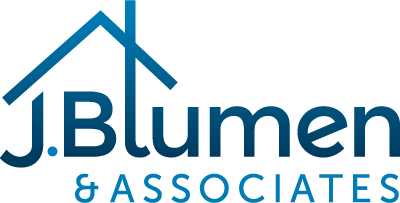
Should You Waive Your Home Inspection?
Another popular strategy that can make your offer stand out in a competitive market is waiving your home inspection contingency.
What Does it Mean to Waive the Inspection Contingency?
The inspection contingency is a standard part of typical Offers to Purchase real estate in Massachusetts. If your home inspection turns up deal-killing problems, the inspection contingency gives you the right to back out and recover your offer deposit.
In other words, the inspection contingency gives you the time and opportunity to verify the condition of the house or condo before you sign a Purchase and Sales Agreement and are required to put substantial down payment money on the line.
When you waive the inspection contingency you are agreeing to accept the property in “as is” condition. You agree to own whatever problems come with the property.
What Are the Risks?
A licensed home inspector can assist you in identifying potential problems with your new home. For example, your inspector may uncover evidence of water damage or mold. A professional home inspection may be able to tell you that your new home will need a new roof in a few years. Or that your water heater or A/C needs to be replaced.
These findings are not uncommon. And if these problems — or worse — turn up on your home inspection report, the standard inspection contingency gives you an opportunity to negotiate with the Seller.
Typically, when both parties want to make a deal, these kind of issues are resolved with the Seller agreeing to make repairs or credit the Buyer with a reduction in price. And if you can’t come to an agreement, the inspection contingency allows you to walk away with your deposit.
When you waive your inspection contingency, you assume all financial risk for whatever condition the property is in — and whatever repairs are required. Sometimes the fix is relatively simple and inexpensive. But if your problems are serious, what you don’t know can add thousands, and in some case, tens of thousands to the true cost of buying that property.
I’ve seen it happen. Take, for example, the Buyer who discovered (as they were moving in) that not all the electrical outlets worked. They ended up paying for an electrician and building permits to rewire a good portion of the house. Or the couple who found a major structural crack in the foundation after the Sellers moved out.
Were these clients happy about having to deal with these problems? Of course not. But they were happy that waiving the inspection contingency helped them craft a winning offer. The additional cost of making repairs was a risk they understood and a price they were willing and able to pay.
How to Minimize Your Risk
Waiving the inspection contingency can be an effective offer strategy, if you know what you are doing. Here are some tips to help minimize your risk:
- Make sure you have the financial means to play this game. In a competitive market, waiving the home inspection contingency makes sense if you are a well-funded buyer. If you aren’t, this isn’t a strategy. It’s gambling.
- Pay for a professional home inspection before you sign the Purchase and Sales Agreement. Waiving the inspection contingency doesn’t prevent you from having a home inspection. It just means you won’t be able to use results from an inspection to negotiate remedies or price with the Seller.
- If the inspection turns up something that makes you want to walk away, you still can. Yes, you’ll forfeit your offer deposit, but it’s a much smaller loss than forfeiting the down payment you’ll be required to make when you sign the P&S.
Buying a home in Massachusetts? Get the legal help you need. For more information, contact J.Blumen & Associates 781-784-2500.
You may also be interested in:
